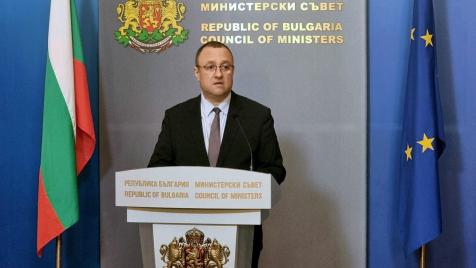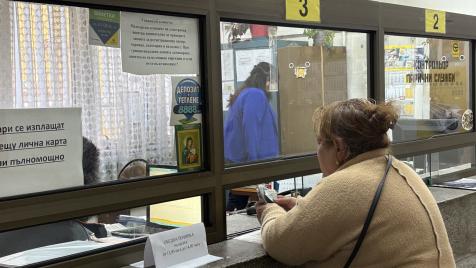Fitch raised its forecast for Bulgaria's economy in 2025
The international rating agency does not expect inflation to prevent the country from joining the eurozone next year

© ECONOMIC.BG / Depositphotos
The international agency Fitch Ratings has raised its forecast for Bulgaria's gross domestic product (GDP) growth. The new estimate is for 3.1% for 2025, while the October report expected 2.5% growth. The revision was made due to the good performance of the economy in 2024 and the improved domestic political situation, the Ministry of Finance says.
Strong nominal wage growth will continue to support consumption. The rating agency notes that despite cautious concerns about the capacity and pace of reform implementation, EU funds are expected to increase and support investment activity.
The rating agency expects Bulgarian inflation (measured by the European HICP index) to average 3.9% in 2025, up from 2.6% in 2024. Fitch does not expect the inflation rate to prevent the country from joining the eurozone. The forecast also predicts a decline in inflation to 3% in 2026.
The Agency estimates that the general budget deficit will widen to 2.8% of GDP in 2024 from 2% in 2023, reflecting higher wage and social security spending. It forecasts a budget deficit of 2.7% in 2025, reflecting further increases in the public sector wages, military equipment purchases (0.5% of GDP) and planned revenue-raising measures. The Agency expects the deficit to decline to 2.4% in 2026, due to its assumptions of higher defense spending and lower EU funding expectations.
Given these forecasts, Fitch Ratings affirms Bulgaria's long-term foreign and local currency credit rating at "BBB" with a positive outlook.
Bulgaria's rating is supported by the country's strong external and fiscal position compared to peers, the sound policy framework stemming from EU membership and the long-standing currency board arrangement. However, it is noted that low labor productivity and unfavorable demographics have a dampening effect on potential growth in the long term. The rating agency notes that the unstable political environment observed in recent years has affected the implementation of reforms.
The positive outlook reflects the prospects for euro adoption, which would lead to further improvement in external indicators.
In February 2025, Bulgaria submitted a request to the European Commission and the European Central Bank for extraordinary convergence reports after fulfilling all nominal Maastricht criteria, including the price stability criterion. The reports are likely to be published in early June, and if the assessment is positive, this would allow Bulgaria to adopt the euro from January 2026. The rating agency notes that it finds the adoption of the euro generally supportive of the rating.
Factors that could lead to positive rating actions are a confirmation that Bulgaria has fulfilled the convergence criteria, as well as greater certainty regarding the likely timing of euro adoption and improved growth potential.
Factors that could lead to negative rating actions include: lack of progress in joining the eurozone due to renewed political instability or failure to meet convergence criteria, and weaker economic growth prospects.
Translated by Tzvetozar Vincent Iolov

 Georgi Zhelyazkov
Georgi Zhelyazkov 




